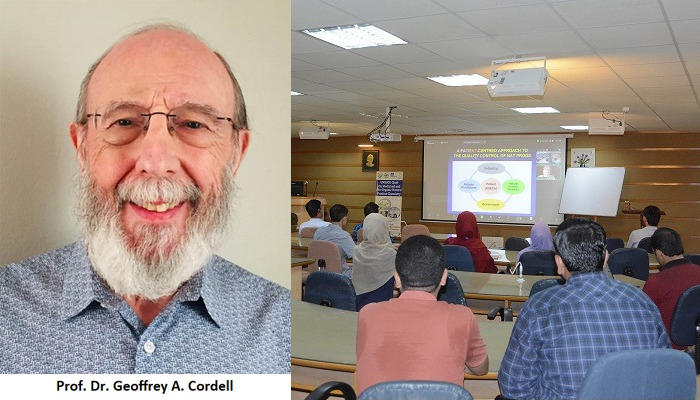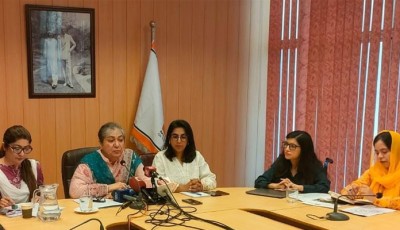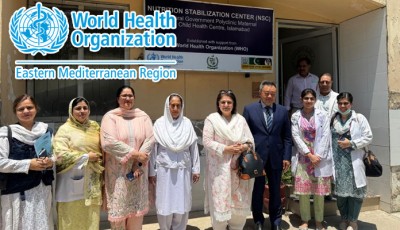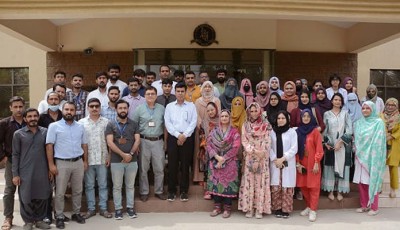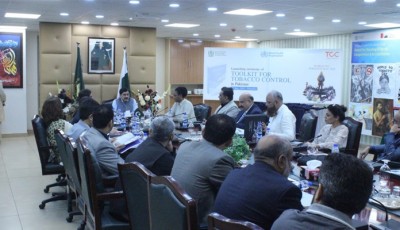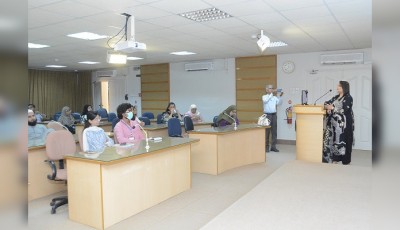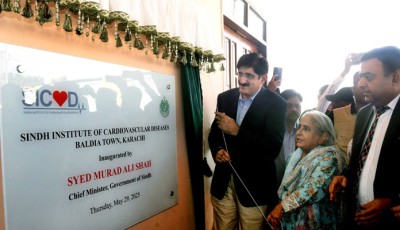KARACHI: Renowned American scientist Prof. Dr. Geoffrey A. Cordell has voiced deep concern over the accelerating pace of global climate change, highlighting 2024 as the hottest year recorded in the past 170 years. “Global climate is changing faster than expected,” he cautioned, emphasizing the urgent need for sustainable actions.
Dr. Cordell, Professor Emeritus at the University of Illinois, Adjunct Professor at the University of Florida, and President of Natural Products Inc., USA, was addressing an international online lecture titled “The Future Role of Natural Products in Medicine Security.” The event was organized by the UNESCO Chair on Medicinal and Bio-Organic Natural Product Chemistry at the International Center for Chemical and Biological Sciences (ICCBS), University of Karachi.
In his lecture, Dr. Cordell underscored that healing the Earth is essential for human survival, and stressed the importance of leveraging artificial intelligence and machine learning (AI/ML) in identifying, monitoring, and cultivating medicinal plants. “Plant medicines are vital to global health,” he said.
Raising alarm over rising environmental degradation, he remarked, “We do not have another planet, and our resources are finite.” He pointed out that climate-related disasters such as floods, droughts, and wildfires are becoming more frequent and severe.
Referring to the growing global population, Dr. Cordell highlighted that Pakistan’s population is expected to increase by 46% by 2050, reaching 372 million, positioning it as the fourth most populous country in the world.
“It is the responsibility of every nation to protect the Earth and collaborate globally to reduce disease burdens,” he asserted, adding that relying solely on pharmaceutical giants for global health solutions is unrealistic. He called for interdisciplinary collaboration and increased funding to tackle environmental and health challenges.
Expressing concern over melting Antarctic ice and increasing carbon emissions, he said, “2023 witnessed Antarctica’s lowest ice levels in recorded history,” warning that climate change and inequality are converging crises.
The session concluded with remarks by Prof. Dr. Muhammad Raza Shah, Director of ICCBS and UNESCO Chair Holder, who reiterated the significance of natural products research in addressing future healthcare challenges.
Quoting Native American leader Chief Seattle, Dr. Cordell reminded the audience: “We do not inherit the Earth from our ancestors; we borrow it from our children.”
